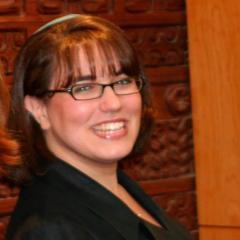
Israeli Music as an Instrument for Change
I will never forget the moment when, age 16, one of the leaders of my Israel tour asked a friend and I to sing the song ‘Shir LaShalom’ at the grave of Yitzchak Rabin, while we were visiting Har Herzl - Israel’s national cemetery. The moment is etched in my memory for several reasons: Firstly, because we each knew the story 1 of how important that song had been to Rabin, who had been assassinated only months prior to our trip. Secondly, and somewhat ironically, because while I was terrified of singing in public at that point in my life, it was the moment I first understood why my youth movement, RSY-Netzer, had prioritized teaching Israeli music to my friends and me. As my Jewish education & Hebrew language skills developed, I had access to the narrative that accompanied the creation and development of the State of Israel, all thanks to songs I had learned as a child.
As we approach Yom Ha’atzma’ut (Israeli Independence Day), some of these words and melodies will provide the soundtrack for our celebrations. ‘Yerushalayim Shel Zahav’ & ‘Lu Y’hi’ – both by Naomi Shemer; a composer notorious for writing texts and melodies offering a romanticized message of a peaceful Jerusalem and Israel - are obvious examples. These are songs that hold an important place in our collective memory and in our hearts. Their texts allow us to dream of “...eyes lifted in hope [as] all those in the city squares clamour only for peace”. 2
Unfortunately, life in Israel is not so simple, and progressive Jews are often criticized for their role as a critical friend to Israel. We struggle when a Jewish country - ‘our’ country – does not live up to our expectations. Yet if we look to the music of contemporary Israel, we can find a tremendous social conscience among Israel’s artists and musicians. If we continue to only sing the songs of Israel’s past, we could miss a whole generation of beautiful music, with an incredibly powerful message.
Last July, a 25 year-old videographer, Daphni Leef, was evicted from her apartment in Tel Aviv. Unable to find affordable accommodation, she pitched a tent on Rothschild Boulevard as her way of protesting the cost of soaring rent in Israel. You know the rest of the story. By September, hundreds of thousands of Israelis had joined her, and by the autumn, American and British protesters followed suit.
For me, a country in the Middle East that enables a Movement who challenge the government and prioritise social justice to flourish is one with which I feel proud to associate. In fact, after the genesis of these protests last summer, David Broza - described by some as the Israeli Eric Clapton - wrote entirely new lyrics for his famous song ‘Yihiye Tov’, describing the potential for people to make change for good. (You can hear this new setting by watching the video at http://tinyurl.com/d6ldpeu).
It’s not just the call to social action from the middle class that we can hear in Israel today: Another Israeli singer-songwriter, Idan Raichel, works with Ethiopian, Moroccan, and Yemenite immigrants to help them integrate into society, and many of his songs have become chart toppers. His song ‘Bo’i’ offers a crucial message that time waits for no one, and demands a sense of urgency to action in Israel.
Acknowledging this sense of urgency, Achinoam Nini and Mira Awad created a contentious duo as Jewish-Israeli and Arab-Israeli singers who co-wrote the 2009 Israeli Eurovision Song Contest entry, ‘There Must Be Another Way’. Meanwhile, lesser-known artists are also using music as a powerful vehicle for a social message: Alma Zohar reflects on the message of Passover in her song ‘MiMitzrayim’ when she writes about our responsibility to speak up for those still suffering persecution. Her lyric; “There’s always war in Africa; what luck that it’s so far away we don’t have to see or hear the screams” couples a fierce message with her poignant prayer that we are “blessed to never need the mercies of another man.” (You can hear her song here: http://tinyurl.com/bvt96fl).
In fact, Zohar is a secular musician, yet one of many in Israel using liturgy and prayer in their music today. It seems that, as social responsibility finds its voice loud and clear in Israel, Jewish text has once again become fashionable. As we move towards Yom Ha’atzma’ut, I find no melody more stirring than Meir Finkelstein’s setting of “T’fila Lish’lom Medinat Yisra’el” - the prayer for the State of Israel. (You can hear it here: http://tinyurl.com/c8n95na). As Finkelstein’s stirring translation asks; “May Israel be blessed with peace and its people with lasting joy, and let us say, Amen”.
1. The song had been sung at the Peace Rally where Rabin was assassinated, and the lyrics were found in his jacket pocket.
2. Ya’akov Rotblit, Lyrics of ‘Shir LaShalom’

